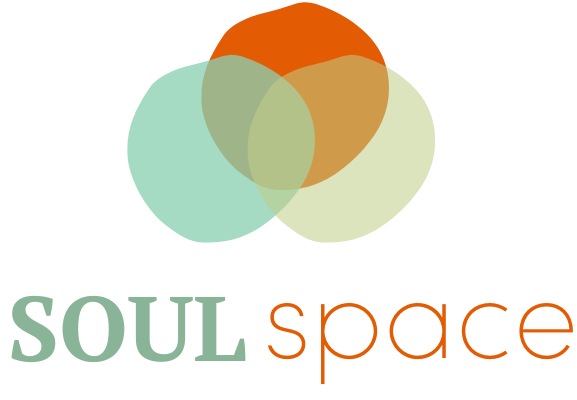Unlock your best self: the benefits of integrative wellness consults
In today's fast-paced world, achieving and maintaining wellness requires more than just addressing individual symptoms or isolated areas of health. True wellness comes from a holistic approach that nurtures the mind, body, and spirit. At Soul Space, Integrative Wellness Consults offer a personalized wellness plan to achieving this by combining various therapeutic modalities that work together to create total body health. Let's explore how counseling, coaching, nutrition, massage, acupuncture, and personal training can unlock your best self.
1. Counseling: Nurturing the Mind
Counseling provides a safe, confidential space to explore your thoughts, emotions, and behaviors. Whether you're dealing with stress, anxiety, depression, or simply need guidance through life's challenges, counseling helps you understand your mental and emotional landscape. By working with a counselor, you can develop coping strategies, improve emotional resilience, and build a stronger foundation for overall well-being.
What Are The Benefits Of Counseling?
- Reduces stress and anxiety
- Enhances emotional resilience
- Improves relationships and communication
- Supports personal growth and self-awareness
2. Coaching: Empowering Your Potential
While counseling often focuses on healing, coaching is about growth and moving forward. A life & health coach works with you to set and achieve personal goals, whether they relate to career, relationships, or health. Coaching is action-oriented and helps you unlock your potential by providing the tools, strategies, and motivation needed to achieve your aspirations.
What Are The Benefits Of Coaching?
- Clarifies personal and professional goals
- Provides accountability and motivation
- Enhances decision-making skills
- Encourages personal and professional growth
3. Nutrition: Fueling Your Body
Nutrition is the cornerstone of physical health. An integrative wellness consult can recommend personalized nutrition sessions that align with your unique needs and goals. Whether you're looking to increase energy, manage a chronic condition, or simply feel more rested, proper nutrition can make a significant difference. By understanding how food affects your body and mind, you can make informed choices that promote long-term wellness.
What Are The Benefits Of Nutrition?
- Improves energy levels and mood
- Increases energy and quality of sleep
- Enhances immune function
- Reduces the risk of chronic diseases
Recognizing that we’re triggered gives us a little distance from the experience and can have a calming effect. We gain a new perspective, allowing space for more information (maybe our partner is oblivious to dog) and new ways of communicating (maybe we can ask them to let the dog out and clue them in to what goes on for us when they don’t notice).
Recognizing our triggers is just a first step, but it can be a powerful one. It can change an interaction from starting with anger, sarcasm, hurt, or fear and into one in which we’re able to more calmly and clearly communicate our thoughts, feelings, and needs.
4. Massage: Healing and Relaxation
Massage therapy is more than just a luxury; it's a powerful tool for managing pain, reducing stress, and promoting relaxation. Whether you're dealing with chronic pain, emotional dysregulation, recovering from an injury, or simply needing to unwind, massage therapy can help. Regular sessions can improve circulation, reduce muscle tension, and support the body's natural healing processes.
What Are The Benefits Of Massage?
- Relieves muscle pain and tension
- Reduces stress and promotes relaxation
- Enhances circulation and flexibility
- Supports injury recovery
5. Acupuncture: Balancing Energy
Acupuncture, an ancient practice rooted in traditional Chinese medicine, involves the insertion of fine needles into specific points on the body to balance energy flow. It's used to treat a wide range of conditions, including chronic pain, anxiety, digestive issues, hormone imbalance, insomnia, and more. Acupuncture promotes the body's natural healing abilities and helps restore balance, making it an essential component of integrative wellness.
What Are The Benefits?
- Alleviates chronic pain and headaches
- Reduces stress and anxiety
- Improves digestion and immune function
- Enhances overall energy balance
6. Personal Training: Strengthening the Body
Physical activity is crucial for maintaining a healthy body and mind. A personal trainer tailors fitness routines to your specific needs, helping you build strength, improve endurance, and achieve your fitness goals. Regular exercise improves physical health, boosts mood, increases confidence and energy, and reduces stress, making it a vital part of your wellness journey.
What Are The Benefits Of Personal Training:
- Builds strength and endurance
- Enhances cardiovascular health
- Supports weight management
- Improves mental health and mood
The Power of Integrative Wellness: You Don’t Have To Figure It Out On Your Own
Integrative wellness consults combine these diverse modalities into a cohesive plan tailored to your unique needs. Our team collaborates to give you personalized recommendations based on where you are currently in your health and your goals and needs. Addressing every aspect of your health—mental, physical, and emotional—integrative wellness helps you achieve a state of total well-being. When these therapies work together, they create a synergistic and compound effect that enhances the benefits of each, leading to deeper healing, greater balance and resilience, and a stronger, healthier you.
Unlocking your best self is not just about addressing individual symptoms or goals; it's about embracing a holistic approach to wellness. Whether you're just beginning your wellness journey or looking to take it to the next level, an integrative approach offers the support and tools you need to thrive.
Ready to unlock your best self? Explore the power of integrative wellness consults today and embark on a journey toward total body wellness.

